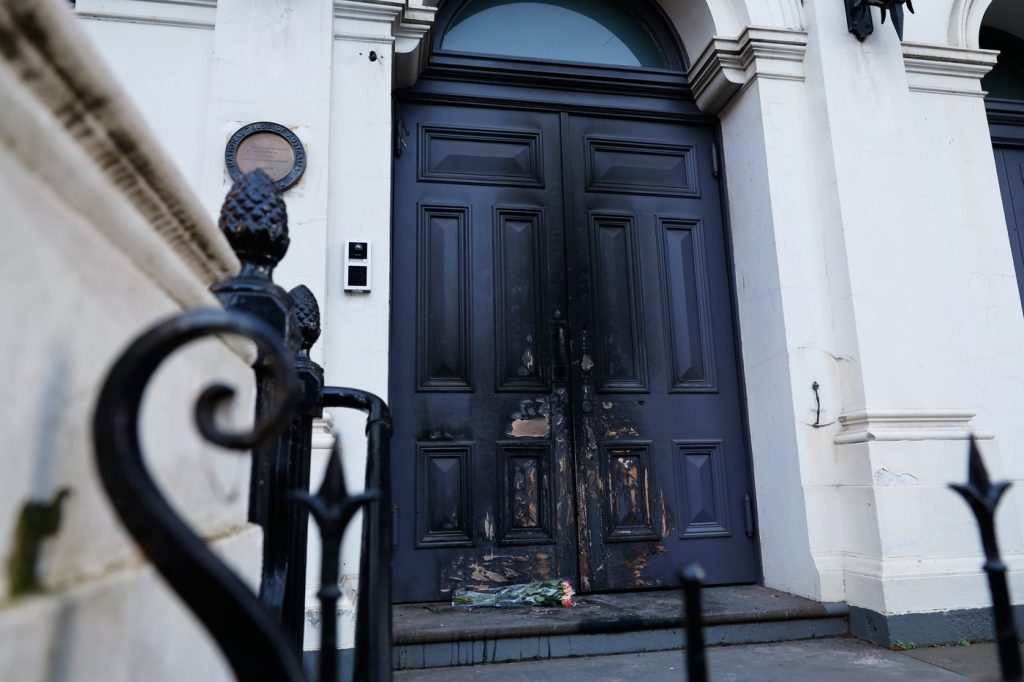MELBOURNE, Australia (AP) — A recent case in Melbourne has shed light on an arson attack carried out at a synagogue that has raised questions of motivation, mental health, and hate crimes. Angelo Loras, a 35-year-old man, was found to have set fire to the East Melbourne Synagogue while approximately 20 worshippers were inside celebrating a Shabbat meal on July 4, 2023. Fortunately, no injuries occurred as a result of the fire, which Loras ignited after dousing the front door with flammable liquid.
In a significant ruling made by Magistrate Malcolm Thomas, it was determined that Loras's actions were not motivated by antisemitism but were instead attributed to a serious mental health condition. Loras had been experiencing delusions due to his failure to take prescribed medication for schizophrenia. This conclusion contradicted initial assessments by government leaders, who had suspected the attack to be a hate crime in the context of the rising antisemitic and Islamophobic incidents reported in Australia since the Israel-Hamas conflict began in 2023.
Prime Minister Anthony Albanese had previously condemned the arson, labeling it as a "cowardly" act of violence and antisemitism that should not be tolerated in Australian society. Loras was sentenced to four months’ imprisonment; however, he had already spent 138 days in custody, making him eligible for release on the very same day of the ruling. Along with his sentence, Loras was ordered to undergo medical treatment for his schizophrenia for the next 20 months and to participate in unpaid community work.
The broader context of antisemitism in Australia has been troubling, with the government linking various incidents of hatred back to foreign influences. In a previous arson attack, the Australian government accused Iran's paramilitary Revolutionary Guards of orchestrating attacks on synagogues and businesses associated with the Jewish community. Despite such allegations, Iran has denied involvement in these incidents, including the fires set to the Adass Israel Synagogue and a kosher food business in Sydney.
Following his arrest two days after the arson, Loras stated to police that he had mistakenly believed the synagogue was a residential building rather than a place of worship. In light of Loras's financial circumstances, Magistrate Thomas advised the Jewish congregation against pursuing restitution for the damages, which amounted to 54,000 Australian dollars (approximately $35,000 USD), as Loras had experienced homelessness for an extended period.
The arson at the East Melbourne Synagogue was not an isolated incident; it coincided with two other suspected antisemitic acts that occurred over the same weekend. On July 5, 2023, a group of around 20 masked protesters targeted an Israeli-owned restaurant, leading to violence that included broken windows and overturned tables, during which they shouted anti-IDF slogans. Additionally, on July 6, police investigated spray-painting incidents and an arson attack on three vehicles associated with a local business, finding antisemitic symbols among the damage.
This series of events has sparked significant concern over the rise of such incidents in Australia, prompting discussions about the intersections of mental health, societal violence, and prejudice. As authorities continue to monitor the situation, it remains crucial to address the underlying issues that lead to both mental health crises and acts of violence against vulnerable communities.











